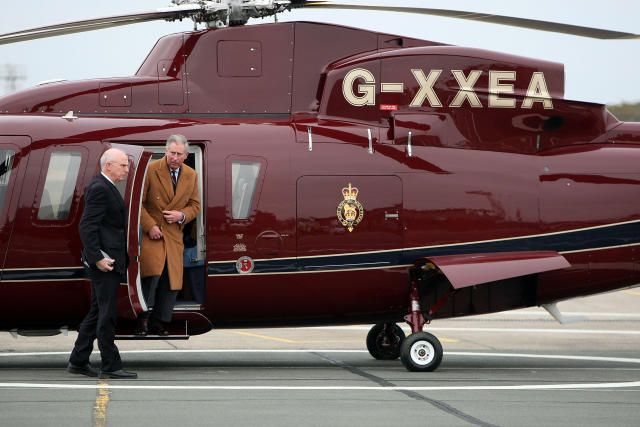In a surprising turn of events, King Charles has emerged triumphant amidst the mockery he has faced for his proposals to combat emissions. From regular taxpayers to politicians and private companies, everyone has finally recognized the urgent need to address climate change before it’s too late.
The recently published Sovereign Grant report sheds light on King Charles’ efforts in this regard. This report aims to provide transparency by detailing the expenses of the monarchy, which is funded by the people through the Sovereign Grant. In return, the King surrenders revenue from the Crown Estate.
According to the report, the Crown Estate has experienced a significant surge in revenue, amounting to £658 million ($847.8 million). This influx of cash has provided King Charles with the means to fulfill his long-standing plan of converting the Bentley State Limousines to run on biofuel. Although the conversion was officially announced in 2009, no concrete plans have been unveiled thus far.
The King currently possesses two State Bentley Limos, each valued at £10 million ($12.8 million), which he utilizes on formal occasions either alone or accompanied by family members. These vehicles, based on the Bentley Arnage, are larger, heavier, taller, and more powerful. Furthermore, they are armored and equipped to withstand potential attacks.
Reports of the conversion plans initially surfaced in 2009, with Prince Charles leading the initiative. Given his dedication to running an entire fleet of vehicles on biofuel, it comes as no surprise that he sought to extend this practice to the massive, gas-guzzling Bentleys.
The report clarifies that the biofuel conversion is considered an “interim measure” while the Royal Household explores the possibility of fully electrifying the Royal fleet. Additionally, they are contemplating collaborating with other car manufacturers, in addition to their traditional partners, Bentley, Jaguar Land Rover, and Rolls-Royce.
Alongside the news of the Bentley conversion, it has been confirmed that King Charles is spearheading other changes. The current 15-year-old Sikorsky S-76s will be replaced next year by a pair of AgustaWestland AW139s. These replacements are being considered due to their ability to operate on sustainable aviation fuel (SAF). The plans have already received approval from the Treasury, and the new aircraft are expected to arrive between 2024 and 2025.
ROYAL FAMILY DEFENDS HELICOPTER TRAVEL AMID CRITICISM
In a surprising move, members of the Royal Family are hitting back at criticism regarding their frequent use of helicopters, even for short distances that could easily be covered by car or train. Despite concerns about sustainability, a Palace official has defended the practice, stating that helicopters are a vital travel resource for the Royals. The official further emphasized their intention to maximize the use of these assets, highlighting that they are already owned and operational.
KING CHARLES LEADS THE WAY IN SUSTAINABILITY
Amidst the controversy, King Charles himself has taken steps to demonstrate his personal commitment to a more sustainable lifestyle. He has personally overseen the installation of solar panels on the historic Windsor Castle. This initiative showcases the King’s dedication to reducing the reliance on traditional energy sources and embracing environmentally friendly alternatives.
Critics argue that the Royal Family’s extensive use of helicopters contradicts their public statements about sustainability. However, Palace officials remain steadfast in their defense, highlighting the importance of helicopters as a necessary tool for the Royals’ travel needs. While the debate rages on, it is clear that King Charles is leading by example, taking tangible steps towards a greener future.










